
HUNGER PAINS
Tshwane schools set up food gardens to supplement the government nutrition scheme and boost the curriculum
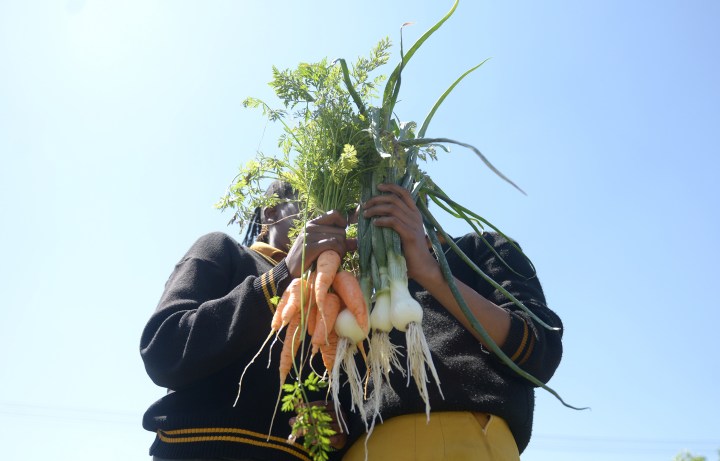
Learners in three Tshwane schools receive meals from the national school nutrition programme, but it’s not enough. They’ve established food gardens to help. The gardens also provide lessons outside the classroom.
Daily Maverick visited three primary schools in Atteridgeville, a township in the western part of Tshwane, and discovered that some lower-quintile schools, also known as no fee-paying schools, are growing their own vegetable food gardens to supplement the meals they receive through the Department of Basic Education’s National School Nutrition Programme.
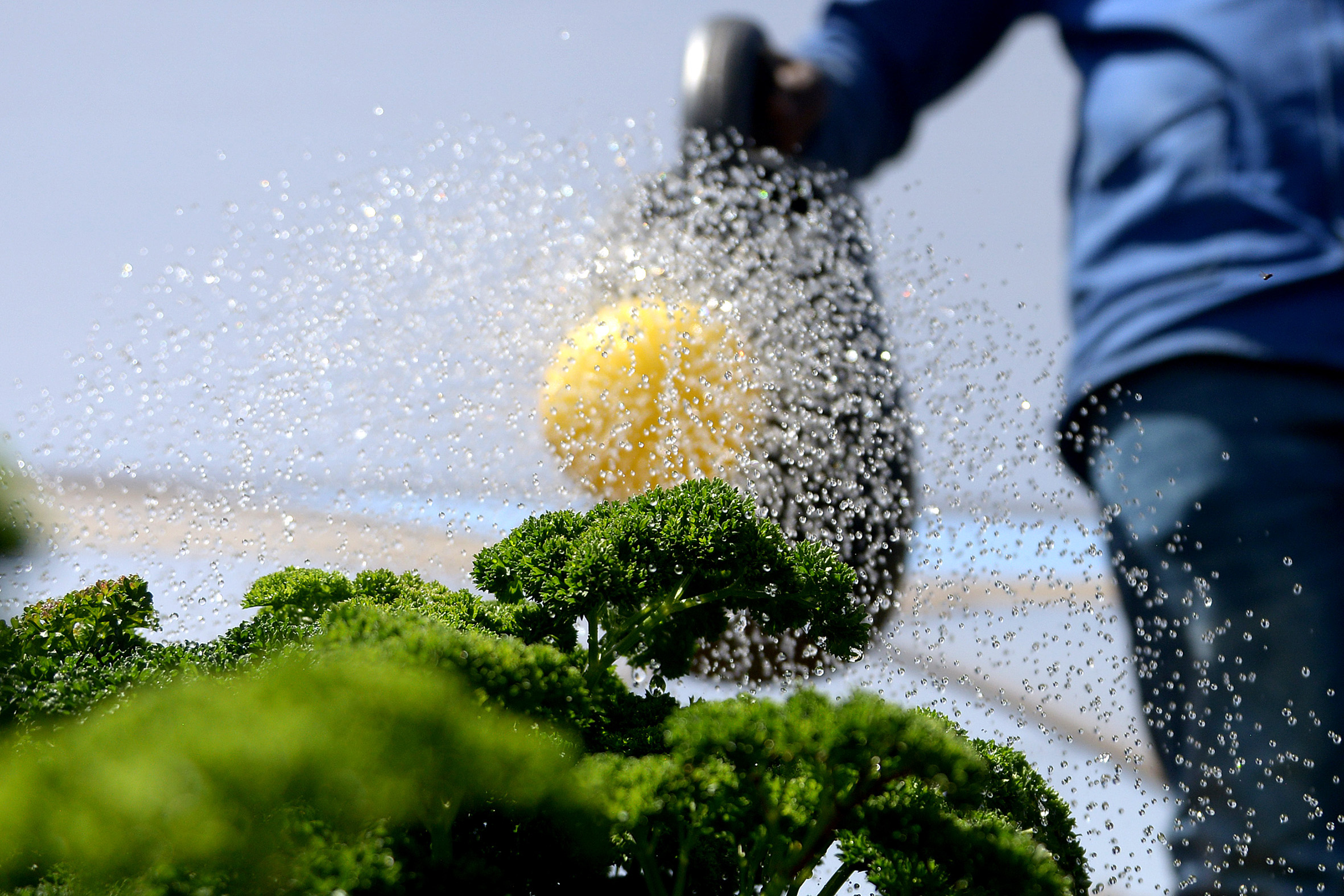
A vegetable garden at Sefako Makgatho Primary School in Atteridgeville. (Photo: Thosh Studio)
These schools are doing this with the assistance of non-profit organisation Siyakhana Growth and Development in partnership with the University of Johannesburg’s food justice programme.
“The school nutrition programme from the department is good and it helps, but the nutritional value is not enough,” Cynthia Tsebe, a teacher at Matseke Primary School, told Daily Maverick.
She said that when she arrived at the school she was shocked that there wasn’t a food garden and noted that learners’ concentration had improved significantly since the garden had been planted.
Ivy Aphane, principal of Matseke Primary School, says that the benefit of the food garden is twofold for learners – it not only feeds them, but they also use it as a practical application of their maths and natural science curriculum.
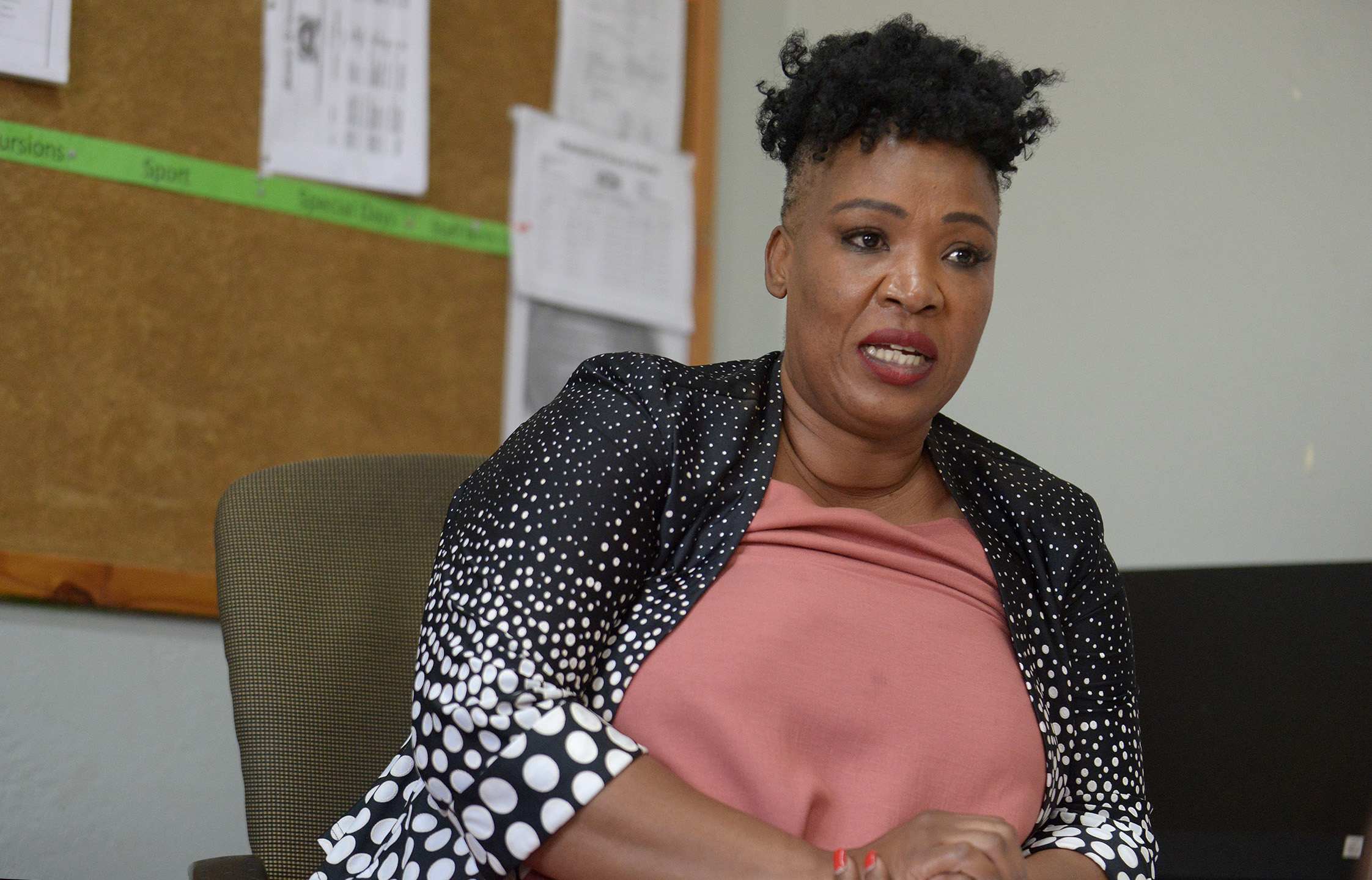
Ivy Aphane, principal at Matseke Primary School in Atteridgeville. (Photo: Thosh Studio)
She says some learners have different cognitive abilities so when learning practically in the garden, they better understand the information being taught in class, such as how to measure accurately and learning about seed germination and how plants grow.
Aphane says that while learners are taught how to plant and tend to the vegetables, they are also encouraged to do so at home and share their new knowledge and skills so their families can benefit from their own food gardens. The school’s garden boasts spring onions, carrots, broccoli, lettuce, beetroot and parsley.
The common thread linking these three schools is that the majority of the learners come from poverty-stricken conditions in the surrounding Itireleng and Gomora informal settlements where their parents do not work and they often find themselves with no food to eat at home.

From left, Sefako Makgatho Primary School Deputy Principal Michael Seloka, Principal Rachel Dhlomo and teacher Kaizer Maabane. (Photo: Thosh Studio)
Many are orphans and rely on the school food gardens for their daily meals, with teachers also packing them food parcels to take home over the weekends and school holidays when they are not at school.
“About 90% of our learners we have are from informal settlements and probably about 20% of them are orphans and from child-headed households,” explains Kaizer Maabane, the teacher in charge of Sefako Makgatho Primary’s food garden.
The 2021/2022 South African Child Gauge report says that about 26,000 children were living in child-only households in 2019.
The child gauge report says that “three-quarters of all children living in child-only households are aged 15 years and above and 41% are 17 years old … 9% of children in child-headed households are under 10 years of age… In addition to the absence of adult members who may provide care and security, they are at risk of living in poorer conditions, with poor access to services, less (and less reliable) income, and low levels of access to social grants”.
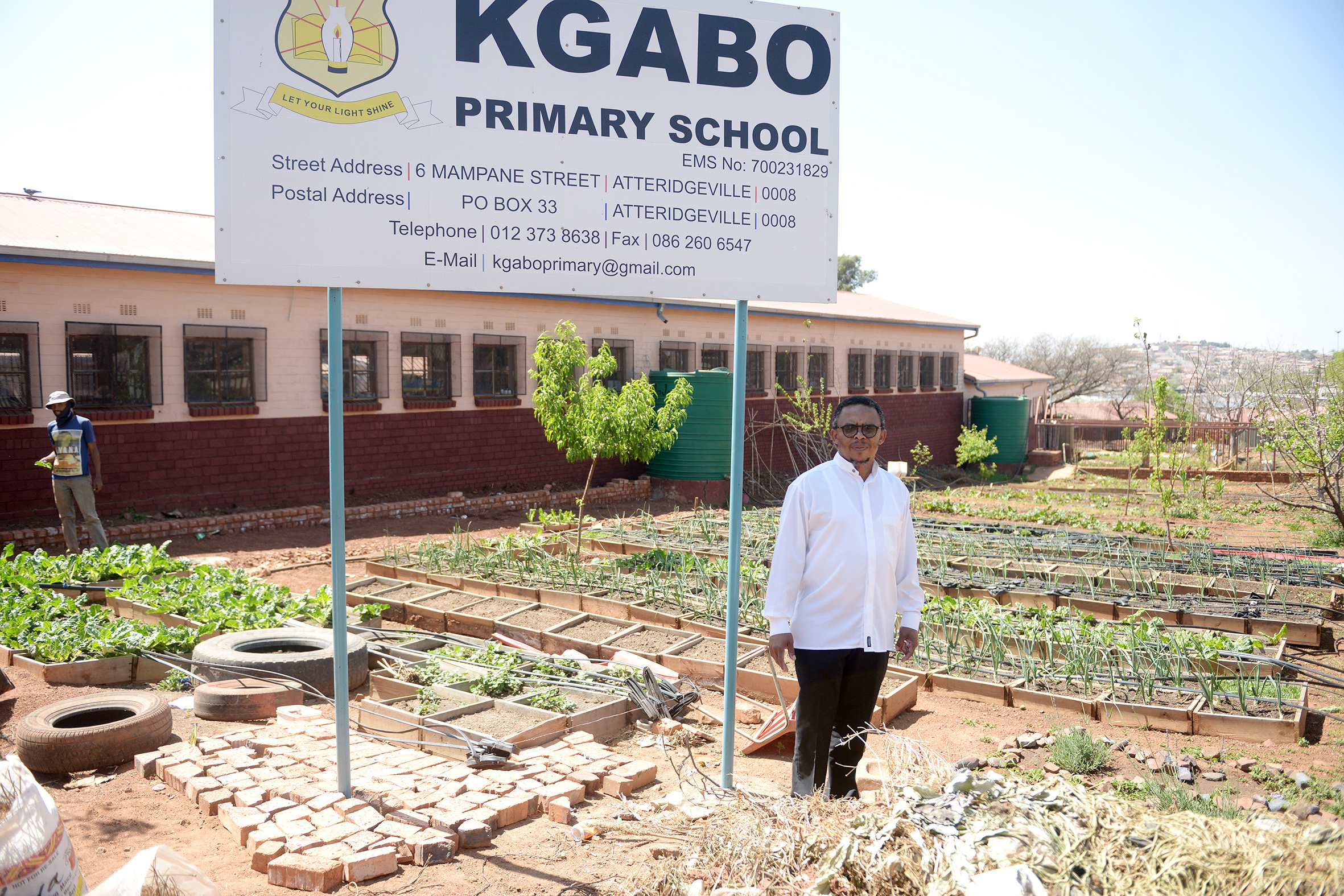
Kgabo Primary School Principal Kagiso Moloto. (Photo: Thosh Studio)
“The main purpose of our food garden is to try and supplement the food that the department is giving us, so we wanted to have different meals for the kids. We top up with what we get from the garden,” says Michael Seloka, deputy principal at Sefako Makgatho Primary School.
“In terms of vegetables, the department supplies the school with only cabbage, onions and carrots.”
“Some of the children are the poorest of the poor; their parents are not working, and as you can see our feeder area is from the squatter camps. In terms of the nutrition from the vegetables, you can even tell now that their skin is different; it looks healthier than before. Those who are having challenges, they know that each and every Friday they will get the food hampers to take home, because you will find that during the weekend they don’t have anything to eat.”
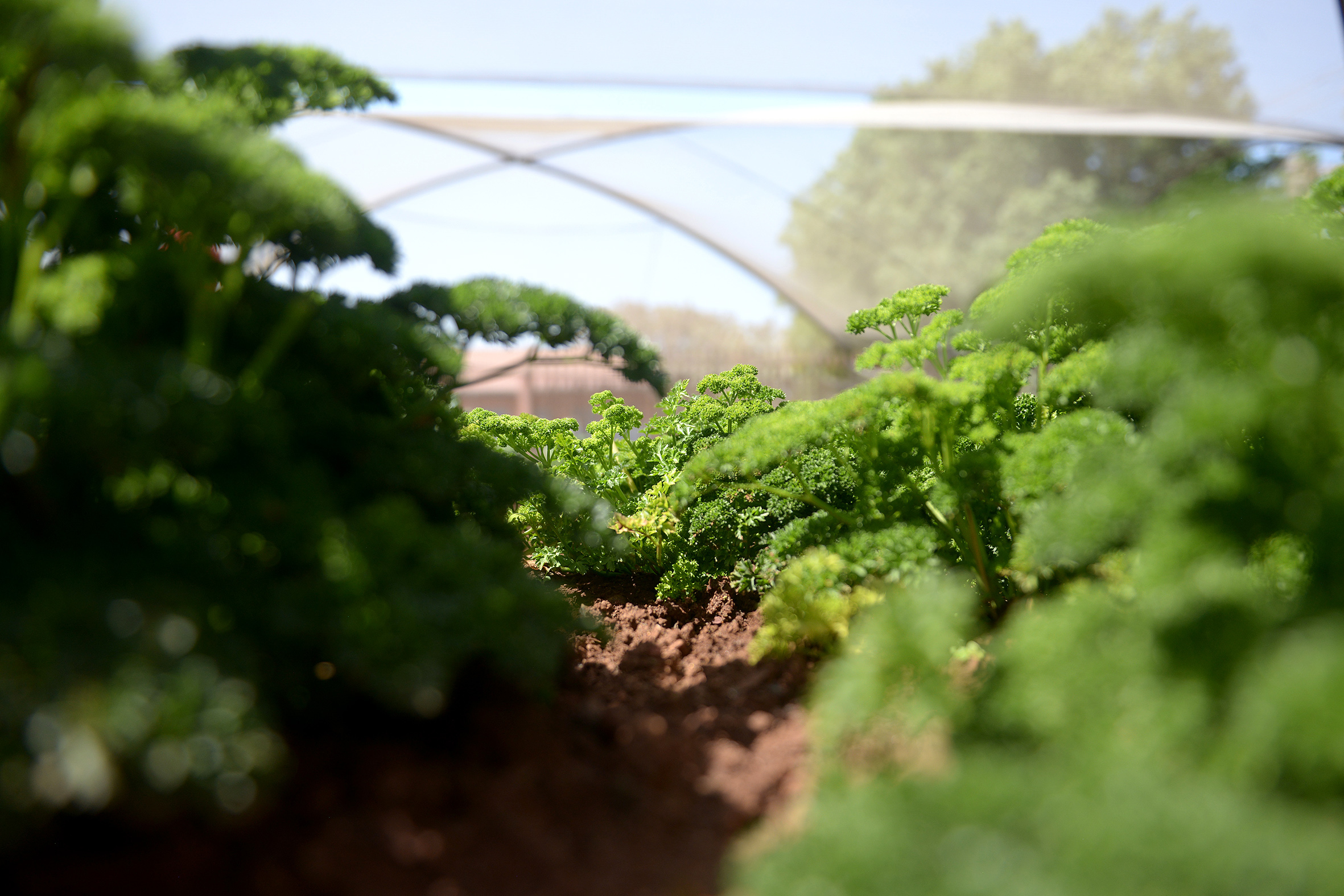
The vegetable garden at Sefako Makgatho Primary School in Atteridgeville. (Photo: Thosh Studio)
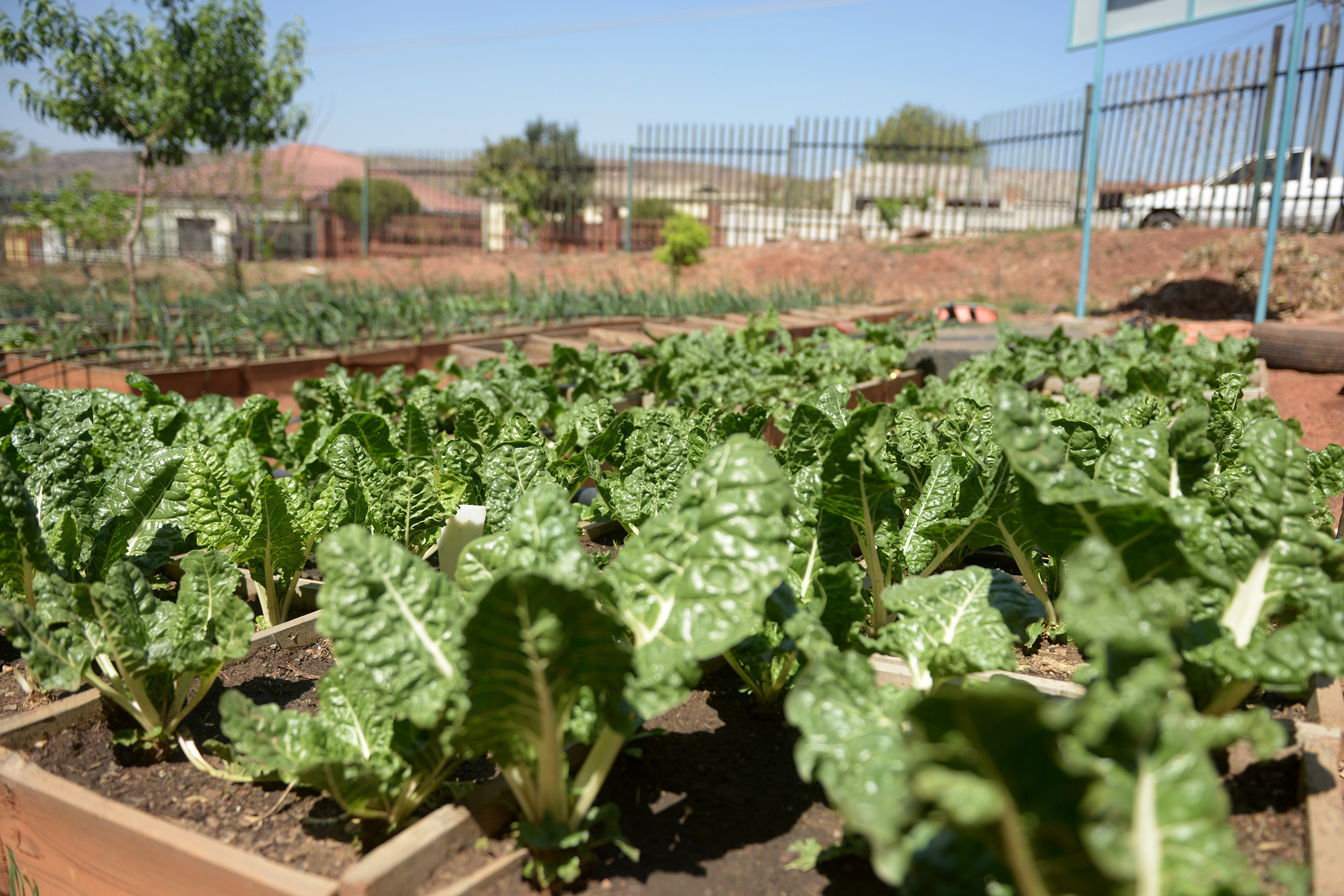
The vegetable garden at Kgabo Primary School in Atteridgeville. (Photo: Thosh Studio)
Maabane says he encourages people in the community to start their own food gardens as a form of crop sharing, by starting gardens on the pavement that can be shared by neighbours.
According to the schools, the DBE provides protein in the form of soya mince or tinned fish, vegetables (one per serving) are mainly cabbage, onions, pumpkin and/or carrots as well as mealie meal pap.
Kgabo Primary School principal Kagiso Moloto’s face lights up when talking about the school’s garden as he proudly shows off their produce of spinach, beetroot, spring onions, ginger, cabbage, tomatoes, strawberries, peaches and even a budding granadilla plant.
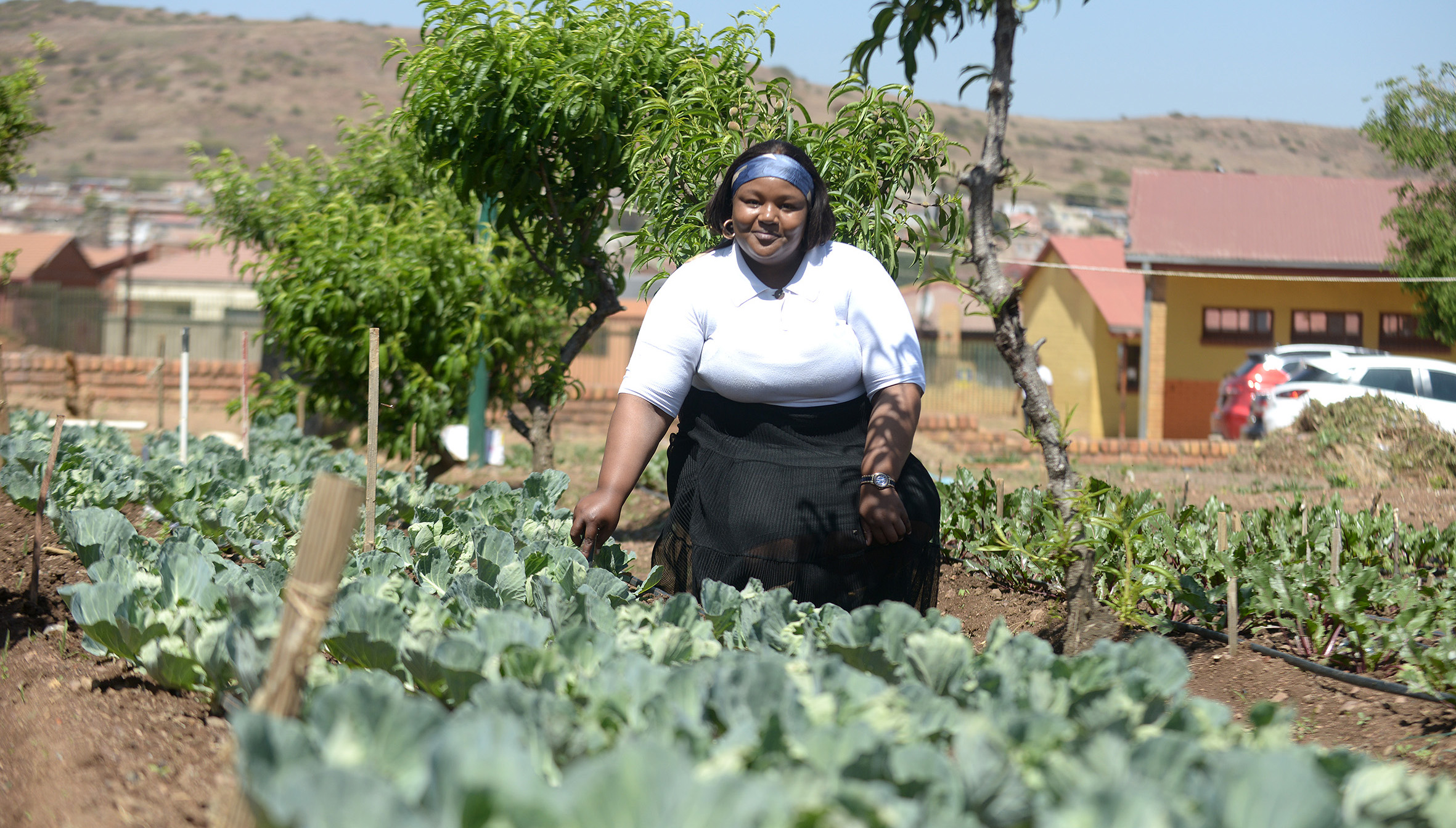
Cynthia Tsebe, a teacher at Matseke Primary School in Atteridgeville. (Photo: Thosh Studio)
“Gardens are not just about food but also beautify the environment,” Moloto says, telling Daily Maverick that the school makes its own compost and fertiliser using kraal manure so they don’t have to add any unwanted chemicals to the produce.
“We used to have people selling sweets to the children in the schoolyard, but I told them they are no longer needed here because sweets have no nutritional value and they make children hyperactive in class. Since they have been gone we have noticed the difference in their learning.”
Moloto says the school aims to expand the garden so that it can supply fresh produce to the nearby children’s home, old age home and for the community to buy from the school, ensuring the sustainability of the garden. He says it’s important that children get the proper nutritional content that vegetables offer, for their developmental growth and concentration in class.
Sharing a gardening tip, Moloto says that for anyone who has a garden and is looking to get rid of weeds, planting pumpkin is the trick as the leaves block out the sunlight that weeds need to grow. DM




















 Become an Insider
Become an Insider
Comments - Please login in order to comment.